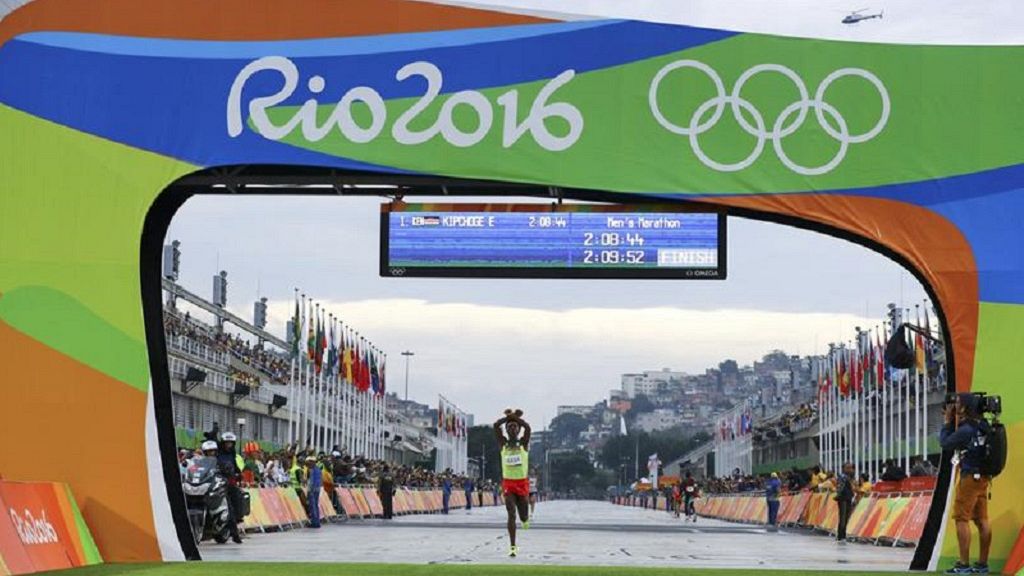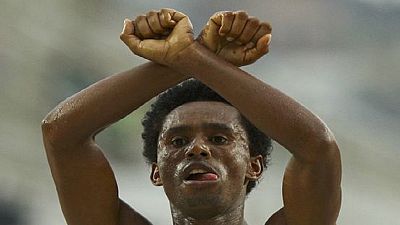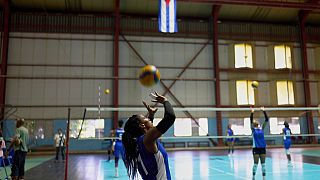Ethiopia
Feyisa Lilesa, Ethiopian long distance runner who took the country’s famed anti-government protest gesture to the Olympics has confirmed that he is now ready to return home.
Lilesa crossed his hand above his head after crossing the line in his race at Rio Olympics two years ago. He went into self-imposed exile after the games.
Whiles other athletes returned to Addis Ababa, he went to the United States and has since been residing in Arizona with his family – who joined him later. He based his refusal to return on the fact that his life would be in danger.
But he says current reforms indicate that his fear does not exist any more. “I was waiting for a change to happen in the country. And there are changes after the new prime minister came to power.
“There is a chance I will be running again for my country,” he added. He hasn’t represented Ethiopia since Rio despite running a number of Marathons across the world.
Earlier this week, local media outlets reported that the country’s athletics and Olympic outfits had reached out to him to return home. The Ethiopian Olympic Committee (EOC) and Ethiopian Athletics Federation (EAF) in a joint statement said Lilesa will be accorded a ‘hero’s welcome.’
Prominent Ethiopians fleeing political persecution: Lilesa, Tsegaye, Teferi

Athlete Feyissa lelissa invited back to a hero’s welcome.
— Yaddi Bojia (YaddiB) August 14, 2018EdgeofSportspic.twitter.com/1snRrosa8f
August 2016: Lilesa takes Oromo protest symbol to the Olympics
Feyisa Lilesa, left Addis Ababa with the country’s Olympic team for Rio 2016 games in Brazil but little did anyone suspect he will make name more for a protest sign than his action on the tracks.
The long distance athlete became famous after he made an anti-government gesture at the end of his track event. He crossed his arms above his head as he finished the event as a protest against the Ethiopian government’s crackdown on political dissent – particularly on persons in his home region of Oromia.
He won the silver medal in the men’s marathon after finishing the 42 kilometer race. He later claimed that his life was in danger. He has since leaving Rio been residing in the United States. He has in interviews rejected claims that he had sought asylum.
He has often traveled to participate in marathons across the world, he failed to make the podium in London but won gold in Bogota. His wife and two kids were subsequently allowed to join him in the U.S.














01:47
New International Olympic Committee president Kirsty Coventry faces high expectations
01:50
Faith Kipyegon falls short of historic sub-four minute mile but vows to keep pushing
Go to video
Kenya set to surpass Ethiopia as East Africa’s largest economy in 2025 – IMF
Go to video
World Food Programme to halt aid for 650,000 women and children in Ethiopia
Go to video
Ethiopians mark Easter with calls for peace and love amid ongoing conflict
02:19
Ethiopians in Washington D.C. keep ancient language and orthodox traditions alive